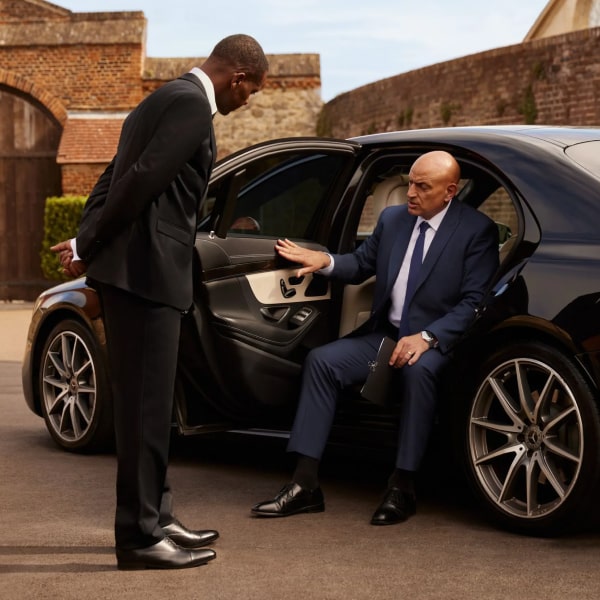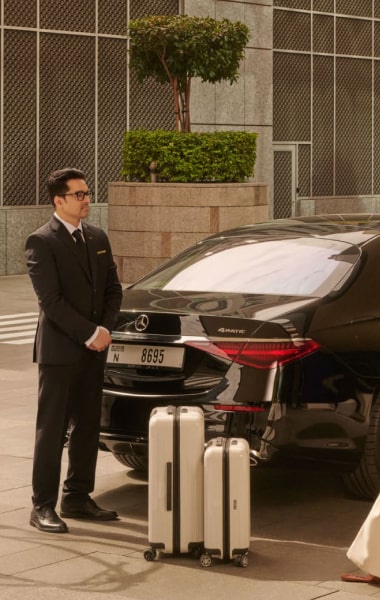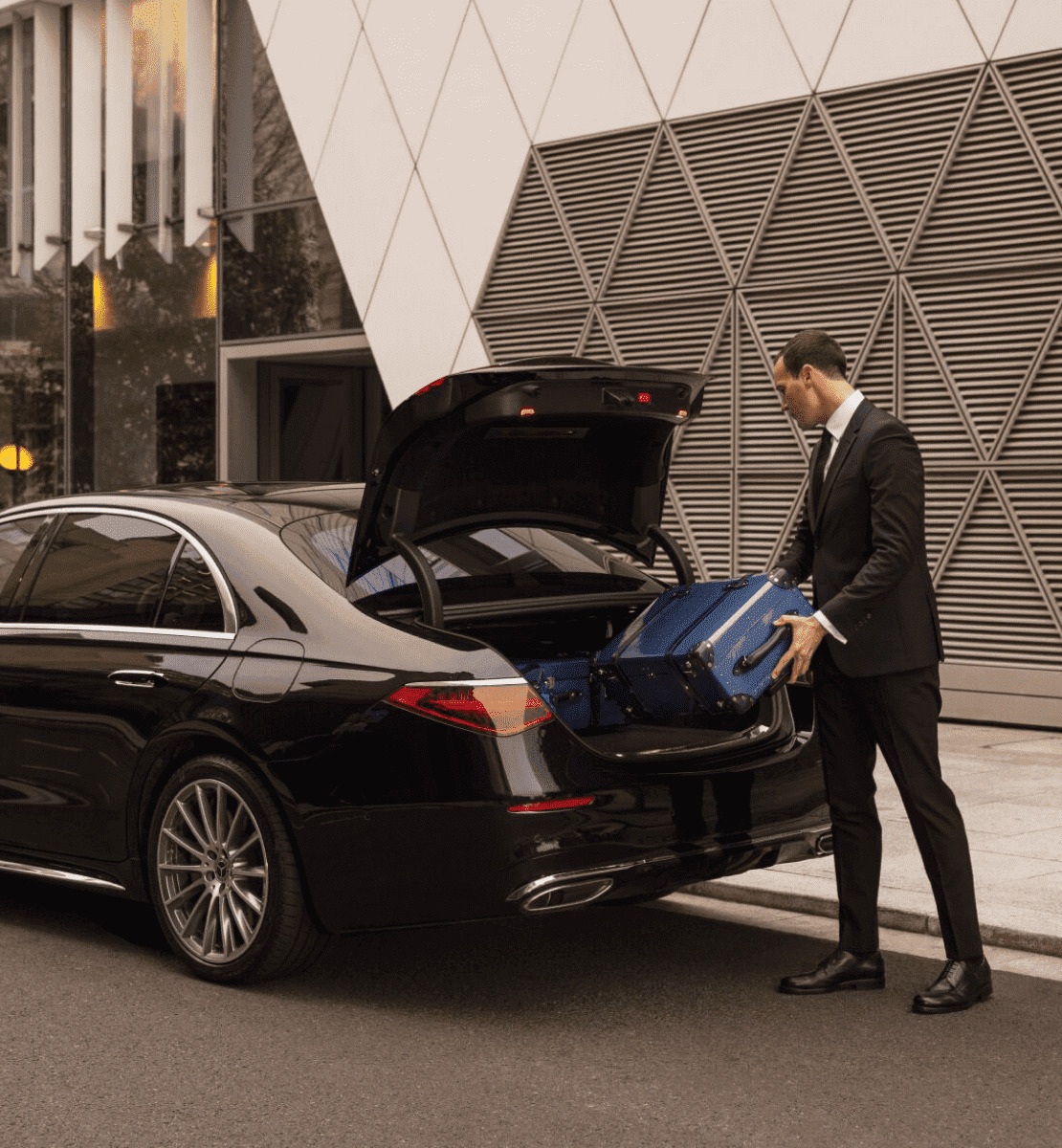Corporate Transportation: Why Executive Car Service Pays for Itself
The Business Case for Executive Car Service: ROI Analysis for Seattle Companies
In Seattle's competitive business environment, first impressions matter, and time is your most valuable asset. Yet many companies still rely on rideshare apps and rental cars for executive and client transportation. Professional corporate car service isn't just a luxury—it's a strategic investment that pays tangible returns. Here's why forward-thinking Seattle businesses are making the switch.
The Hidden Costs of DIY Executive Transportation
Time Waste: When executives drive themselves or use rideshare:
30-45 minutes lost per airport trip to parking, shuttles, and navigation
Inability to work during travel time
Stress and mental fatigue from traffic
Last-minute availability issues with rideshare
Calculate the Real Cost: If an executive earning $150/hour spends 90 minutes on an airport round-trip:
Lost productivity: $225
Plus rideshare cost: $70-120
Total cost: $295-345
Professional car service ($120-180) with productive work time:
Transportation cost: $150 average
Productive work during travel: +$225 value
Net value: $75 gained
Client Impression Issues: Picking up clients in personal vehicles or unreliable rideshares:
Lacks professionalism and polish
Unpredictable vehicle quality
Risk of delays or no-shows
Doesn't reflect company standards
What Professional Corporate Transportation Delivers
Guaranteed Reliability:
Pre-scheduled service, never "no cars available"
Real-time flight tracking for pickups
Professional chauffeurs who arrive early
Backup vehicles for confirmed reservations
Account managers who know your preferences
Productivity Enhancement: Executive vehicles equipped with:
High-speed Wi-Fi for email and video calls
Power outlets and USB charging
Quiet environment for phone calls
Spacious workspace for laptop use
Privacy for confidential discussions
Professional Image:
Immaculate late-model luxury vehicles
Chauffeurs in professional attire
Door-to-door service
Consistent quality every trip
Reflects well on your company brand
Real-World ROI Scenarios
Scenario 1: Regular Airport Travelers
Company Profile: Tech company with 3 executives making weekly SeaTac trips
Old Approach:
Rideshare: $85 average per trip
52 trips/year per executive
Annual cost: $13,260 (rideshare only)
Lost productivity: ~78 hours/year per exec
Professional Service Approach:
Corporate rate: $140 per trip
Same 52 trips/year per executive
Annual cost: $21,840
Additional cost: $8,580
Productivity gained: 78 hours/year per exec = $11,700 value per exec
Net benefit: $35,100 - $8,580 = $26,520/year
Plus, Intangible Benefits:
Zero missed flights from transportation issues
Reduced executive stress
Professional image maintenance
Simplified expense reporting
Scenario 2: Client Entertainment
Company Profile: Consulting firm hosting 20 client visits annually
Old Approach:
Executives drive personal vehicles
Client reimbursement and parking: $30/visit
Executive time: 2 hours per client visit
Annual cost: $600 + lost billable time
Professional Service Approach:
Dedicated car service: $180/visit
Clients impressed by premium service
Executive stays at office (billable work)
Annual cost: $3,600
Additional cost: $3,000
Executive time saved: 40 hours = $6,000+ billable value
Improved close rate: Difficult to quantify, but significant
Net benefit: Minimum $3,000/year
Scenario 3: Corporate Events
Company Profile: Tech company with quarterly board meetings (8 board members traveling from various cities)
Old Approach:
Board members arrange own transportation
Inconsistent arrival times
Some arrive late or stressed
No coordination
Professional Service Approach:
Coordinated pickup service for all board members
Synchronized arrivals
Professional welcome for VIP board members
Cost: $1,200 per meeting ($300/member shared service)
Additional cost vs. reimbursements: ~$600/meeting
Benefits:
Meetings start on time
Board members arrive relaxed and prepared
Projects professional company image
Simplified logistics and expense processing
Strengthens board relationships
Key Features of Professional Corporate Car Service
Account Management:
Dedicated account representative
Knows your preferences and regular travelers
Proactive service improvements
Quick resolution of any issues
Flexible Booking:
Online portal for easy reservations
Last-minute booking accommodation (subject to availability)
Recurring trip scheduling
Multiple users per corporate account
Detailed Reporting:
Consolidated monthly billing
Individual trip documentation
Expense category coding
Usage analytics and insights
Executive Amenities:
Bottled water and mints
Daily newspapers (if requested)
Preferred music or silence
Temperature preferences noted
Technology Integration:
Integration with corporate travel platforms
Real-time trip tracking
Digital receipts and documentation
Calendar sync options
Industries That Benefit Most
Technology Companies:
Frequent SeaTac travel
Client demos and office visits
Investor meetings and presentations
Recruiting top talent (impressive candidate experience)
Law Firms:
Client confidentiality requirements
Professional image essential
Billable hour maximization
Court and deposition transportation
Financial Services:
High-net-worth client service
Professional standards
Regulatory compliance (documented expenses)
Networking event transportation
Healthcare/Medical:
Physician transportation
Medical conference travel
VIP patient services
Pharmaceutical rep transportation
Consulting Firms:
Client site visits
Proposal meetings
Airport commuting
Professional image maintenance
Seattle-Specific Transportation Challenges
Traffic Patterns: Seattle ranks among America's worst traffic cities. Professional chauffeurs:
Know alternate routes and timing
Monitor real-time traffic conditions
Adjust departure times proactively
Navigate
construction zones and closures efficiently
Weather Considerations: Pacific Northwest weather creates transportation challenges:
Rain impacts driving times and safety
Snow/ice events (though rare) require experienced drivers
Fog can delay flights and complicate navigation
Professional chauffeurs prepared for all conditions
SeaTac Airport Complexity:
Multiple terminals and airlines
Cell phone lot navigation
Construction and layout changes
Traffic congestion during peak hours
Professional drivers know optimal pickup locations
Eastside to Seattle Commuting:
I-90 and SR-520 bridge traffic
Toll management and optimal route selection
Time-of-day considerations
Event traffic (Seahawks, concerts, conventions)
Making the Business Case to Leadership
Present the Data:
Cost Comparison Spreadsheet: Create a simple analysis showing:
Current annual transportation spending
Executive time wasted on transportation
Value of that time (hourly rate × hours)
Cost of professional service
Net ROI calculation
Sample Presentation Points:
"Our executives currently spend 120 hours annually managing their own airport transportation. At their average compensation rate, that's $18,000 in lost productivity. Professional car service would cost $12,000 annually—a net savings of $6,000 while improving our professional image."
Pilot Program Proposal: Suggest a 90-day trial:
Track executive satisfaction
Measure time savings
Document reliability
Compare costs to baseline
Evaluate client feedback
Risk Mitigation: Highlight what professional service eliminates:
Late arrivals to important meetings
Lost productivity during travel
Vehicle breakdown scenarios
Parking and navigation stress
Inconsistent client experiences
Implementation Best Practices
Setting Up Your Corporate Account:
Step 1: Needs Assessment
Identify frequent travelers
Map regular routes and destinations
Establish volume estimates
Define service level requirements
Step 2: Policy Development Create clear corporate travel policies:
Who qualifies for car service
Which trips warrant professional transportation
Booking procedures and lead times
Preferred vendors and backup options
Expense reporting requirements
Step 3: Vendor Selection Evaluate providers on:
Fleet quality and variety
Chauffeur professionalism and screening
Account management quality
Billing and reporting capabilities
Reliability and backup systems
Insurance and licensing
Pricing transparency
Step 4: Employee Training Educate authorized users on:
How to book service
Lead time requirements
Proper trip information to provide
Expense documentation
Feedback channels
Step 5: Monitoring and Optimization Track key metrics:
On-time performance
User satisfaction scores
Cost per trip
Usage patterns
Areas for improvement
Corporate Account Features to Request
Must-Have Features:
Multiple user access with individual logins
Consolidated monthly billing
Detailed trip reports with cost center coding
24/7 booking availability
Real-time trip tracking and updates
Mobile app access
Flexible cancellation policies
Nice-to-Have Features:
Integration with corporate travel management systems
Automated expense report generation
Usage analytics and insights
Volume discount tiers
Priority booking for account holders
Dedicated account manager
Quarterly business reviews
Cost Management Strategies
Volume Discounts: Negotiate tiered pricing:
10-20 trips/month: 5-10% discount
20-40 trips/month: 10-15% discount
40+ trips/month: 15-20% discount
Smart Booking Practices:
Book recurring trips in advance for better rates
Use sedan service when SUVs aren't necessary
Share rides when multiple executives travel same route
Avoid peak demand times when possible
Budget Controls:
Set spending limits by user or department
Require approval for trips over certain amounts
Monthly spending caps with alerts
Regular usage audits to identify inefficiencies
Tax and Accounting Benefits
Deductible Business Expenses: Corporate transportation is fully tax-deductible when used for:
Client meetings and entertainment
Airport transfers for business travel
Corporate events and functions
Employee recruiting activities
Simplified Record-Keeping: Professional services provide:
Detailed invoices with trip information
Purpose and passenger documentation
IRS-compliant expense records
Consolidated reporting for audit trails
Advantages Over Mileage Reimbursement:
No tracking individual trips
No vehicle depreciation concerns
Clearer business vs. personal use
Reduced administrative overhead
Environmental and Sustainability Considerations
Corporate ESG Goals: Professional car services support sustainability:
Newer, more fuel-efficient vehicles
Optimized routing reduces emissions
Shared rides when possible
Many services offering hybrid/electric options
Carbon Footprint Tracking: Some providers offer:
CO2 emissions reporting per trip
Carbon offset program options
Electric vehicle availability
Sustainability metrics for corporate reporting
Security and Safety Considerations
Executive Protection: Professional services provide:
Background-checked, licensed chauffeurs
Fully insured vehicles and operations
GPS tracking for all vehicles
Emergency response protocols
Confidentiality agreements
Client Safety: When transporting clients:
Liability coverage protects your company
Professional drivers reduce accident risk
Documented service creates accountability
Positive client experience reduces legal exposure
Scaling Corporate Transportation
Small Business (5-20 employees):
Start with as-needed bookings
Establish account for simplified billing
Use for VIP client visits and executive travel
Budget: $500-2,000/month
Mid-Size Business (20-200 employees):
Corporate account with multiple authorized users
Regular executive airport service
Client entertainment transportation
Event and meeting support
Budget: $2,000-8,000/month
Enterprise (200+ employees):
Dedicated account management
Volume pricing agreements
Integration with corporate travel systems
Multiple vehicle types and service levels
Budget: $8,000-30,000+/month
Measuring Success
Key Performance Indicators:
Quantitative Metrics:
On-time performance rate (target: 98%+)
Cost per trip vs. budget
Executive hours saved
Client satisfaction scores
No-show/cancellation incidents (target: zero)
Qualitative Metrics:
Executive feedback and satisfaction
Client impressions and comments
Ease of booking and service
Chauffeur professionalism ratings
Overall service quality
ROI Calculation: Monthly review should show:
Total transportation costs
Productivity hours gained × hourly rate
Client acquisition/retention impacts
Brand impression improvements
Net value delivered
Common Objections and Responses
"It's too expensive" Response: Calculate total cost including executive time wasted. Professional service often costs less when productivity value is included.
"Executives can drive themselves" Response: Their time is worth $100-300/hour. Is driving the best use of that time, or should they be working, preparing for meetings, or arriving refreshed?
"Rideshare works fine" Response: Rideshare has inconsistent quality, surge pricing, and availability issues. Can you afford a missed flight or unprofessional client experience?
"We don't travel enough to justify it" Response: Even 2-3 trips per month generate positive ROI. Plus, having reliable service available when needed is valuable insurance.
"Employees will abuse the benefit" Response: Clear policies and approval processes prevent abuse. Consolidated billing provides transparency and accountability.
Getting Started: Implementation Checklist
Week 1: Research and Planning
Assess current transportation spending and patterns
Calculate executive time costs
Identify pain points with current approach
Research corporate transportation providers
Request proposals from 2-3 vendors
Week 2: Evaluation
Compare proposals and pricing
Check references and reviews
Preview vehicles if possible
Evaluate account management offerings
Assess reporting and billing systems
Week 3: Selection and Setup
Choose provider and negotiate terms
Set up corporate account
Create user policies and guidelines
Configure billing and reporting
Establish authorized users
Week 4: Launch
Train employees on booking process
Communicate policies and procedures
Schedule initial trips
Gather feedback after first trips
Adjust as needed
Ongoing: Optimization
Monthly review of usage and costs
Quarterly business reviews with provider
Annual contract renewal negotiations
Continuous feedback collection
Policy refinements based on experience
Real Client Success Stories
Tech Company Case Study: A Bellevue software company with 15 executives implemented corporate car service for all SeaTac trips. Within 6 months:
Reduced missed flights from 8/year to zero
Executives reported 40% less travel stress
Landed major client after impressive airport pickup experience
ROI calculated at 180% when including productivity gains
Law Firm Case Study: Seattle law firm serving high-net-worth clients added luxury car service for client transportation:
Client satisfaction scores increased 25%
Won 3 new clients who mentioned professional transportation
Partners saved 120 hours annually on client chauffeur duties
Gross revenue impact: $500,000+ from impressed clients
Consulting Firm Case Study: Management consultancy implemented executive car service for all client site visits:
Consultants arrive prepared, not stressed from driving
95% of meetings start on time (up from 70%)
Professional image enhancement helped win competitive bids
Billable hours increased due to productive travel time
The Competitive Advantage
In Seattle's competitive business environment, companies that invest in professional corporate transportation gain:
Talent Recruitment: Top candidates notice the difference. Professional transportation during interviews signals a company that values its people.
Client Retention: VIP treatment through luxury car service creates memorable experiences that strengthen client relationships.
Executive Performance: Well-rested, prepared executives who arrive on time make better decisions and represent the company more effectively.
Brand Positioning: Professional transportation aligns with premium brand positioning and communicates attention to detail.
Future Trends in Corporate Transportation
Technology Integration:
AI-powered route optimization
Seamless calendar integration
Predictive booking based on patterns
Real-time collaboration with travel management
Sustainability Focus:
Electric vehicle fleets growing
Carbon-neutral service options
ESG reporting integration
Green transportation as corporate differentiator
Personalization:
AI learning individual preferences
Customized in-vehicle experiences
Predictive service (automatic booking for recurring trips)
Enhanced productivity tools in vehicles
Ready to elevate your corporate transportation? Contact Bellevue Limo Service for a customized corporate account proposal, ROI analysis, and 90-day pilot program tailored to your company's needs.
Related Services
At Your Service — 24 Hours a Day
or personalized travel arrangements. One call connects you to exceptional service, whenever you need it.
Services
- Holiday Lights Tours
- Hourly Car Service
- Group Transportation
- Airport Transportation
- Concert Transportation
- Corporate Transportation
- Government Transportation
Helpful Links
- Flight Tracker
- Things to do
- City of Bellevue
- Bellevue Weather
- Bellevue Park & Ride
- Bellevue Public Transit
- Bellevue pierce Transit
Useful Links
- FAQ
- Fleet
- Services
- Legal Notice
- Privacy Policy
- Sustainability
- Terms and Conditions
© Bellevue Limo Service 2025. All Rights Reserved.





